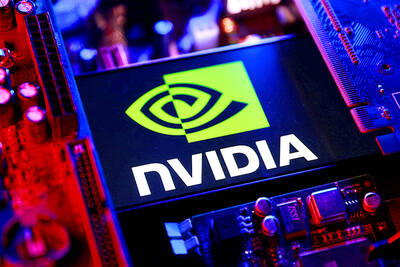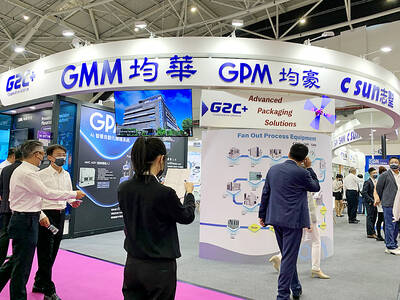The Financial Supervisory Commission (FSC) said yesterday DBS Bank (星展銀行) would need a capital injection from its Singaporean parent both to meet tightened capital requirements and to qualify for its plan to upgrade a local branch to a subsidiary in the third quarter next year.
Foreign banks must maintain at least NT$200 million (US$6.6 million) in working capital — up from NT$100 million before the commission changed the requirements in December last year to enhance risk control — for each individual branch in Taiwan, with the threshold rising to NT$250 million if the branches take deposits from individuals.
All 28 foreign banks operating in the country were given one year to make the adjustment and DBS is the only foreign lender that has yet to meet the requirement, the commission said.
Chang Kuo-ming (張國銘), deputy director-general at the commission’s banking bureau, said DBS has applied to increase capital by NT$5.95 billion before Dec. 1 and the fund may help meet the upgrade requirement later.
A banking subsidiary must maintain NT$10 billion in working capital, as required of all domestic lenders, and is subject to the commission’s regular stress tests, Chang said.
DBS, the largest lender in Southeast Asia by assets, is scheduled to celebrate relocations of three branches acquired from Bowa Bank (寶華銀行) next week in a continued bid to strengthen its presence in Taiwan, the Singapore-based lender said in a statement yesterday.
One branch is located in the prime Xinyi District (信義), where the bank plans to move its Taipei headquarters in the first half of next year and upgrade to a subsidiary in the third quarter, the bank said.
DBS has said it aims to become one of the top three foreign banks in Taiwan in five years’ time and has increased investment on infrastructure facilities and personnel expansions.
The branch relocations to more populous areas in Taipei and Taichung cities on Wednesday next week are similar moves to realize the bank’s ambition, DBS said.
The bank posted a net profit of NT$145 million for the first nine months of this year, slumping 68.95 percent from a year earlier as bad loan costs rose 2.36 times to NT$484.11 million, from NT$143.90 million, company statistics showed.
Net fee income more than doubled to NT$488.27 million during the January-to-September period from NT$238.12 million a year earlier, while net interest income rose 22 percent to NT$147 million billion from NT$120 million, the lender’s data showed.

POWERING UP: PSUs for AI servers made up about 50% of Delta’s total server PSU revenue during the first three quarters of last year, the company said Power supply and electronic components maker Delta Electronics Inc (台達電) reported record-high revenue of NT$161.61 billion (US$5.11 billion) for last quarter and said it remains positive about this quarter. Last quarter’s figure was up 7.6 percent from the previous quarter and 41.51 percent higher than a year earlier, and largely in line with Yuanta Securities Investment Consulting Co’s (元大投顧) forecast of NT$160 billion. Delta’s annual revenue last year rose 31.76 percent year-on-year to NT$554.89 billion, also a record high for the company. Its strong performance reflected continued demand for high-performance power solutions and advanced liquid-cooling products used in artificial intelligence (AI) data centers,

SIZE MATTERS: TSMC started phasing out 8-inch wafer production last year, while Samsung is more aggressively retiring 8-inch capacity, TrendForce said Chipmakers are expected to raise prices of 8-inch wafers by up to 20 percent this year on concern over supply constraints as major contract chipmakers Taiwan Semiconductor Manufacturing Co (TSMC, 台積電) and Samsung Electronics Co gradually retire less advanced wafer capacity, TrendForce Corp (集邦科技) said yesterday. It is the first significant across-the-board price hike since a global semiconductor correction in 2023, the Taipei-based market researcher said in a report. Global 8-inch wafer capacity slid 0.3 percent year-on-year last year, although 8-inch wafer prices still hovered at relatively stable levels throughout the year, TrendForce said. The downward trend is expected to continue this year,

‘BASICALLY A BAN’: Sources said the wording governing H200 imports from officials was severe, but added that the regulations might change if the situation evolves Chinese customs authorities told customs agents this week that Nvidia Corp’s H200 artificial intelligence (AI) chips are not permitted to enter China, three people briefed on the matter said. Chinese government officials also summoned domestic technology companies to meetings on Tuesday, at which they were explicitly instructed not to purchase the chips unless necessary, two of the people and a third source said. “The wording from the officials is so severe that it is basically a ban for now, though this might change in the future should things evolve,” one of the people said. The H200, Nvidia’s second-most powerful AI chip, is one

STRONG SALES: The company said that revenue growth momentum would remain strong this year and next year as major customers continue to buy new equipment Semiconductor equipment supplier Gallant Precision Machining Co (均豪) yesterday reported its best annual profit in 19 years last year, as booming artificial intelligence (AI) chip demand boosted sales of its advanced packaging equipment. Net profit surged about 40 percent to NT$415 million (US$13.12 million), compared with NT$297 million in 2024, the company said in a regulatory filing. Earnings per share rose to NT$2.58 from NT$1.82. Revenue grew 5.18 percent annually to NT$4.67 billion from NT$4.44 billion in 2024. Gallant Precision said revenue growth momentum would remain strong this year and next year as major customers continue to spend heavily on new equipment to boost